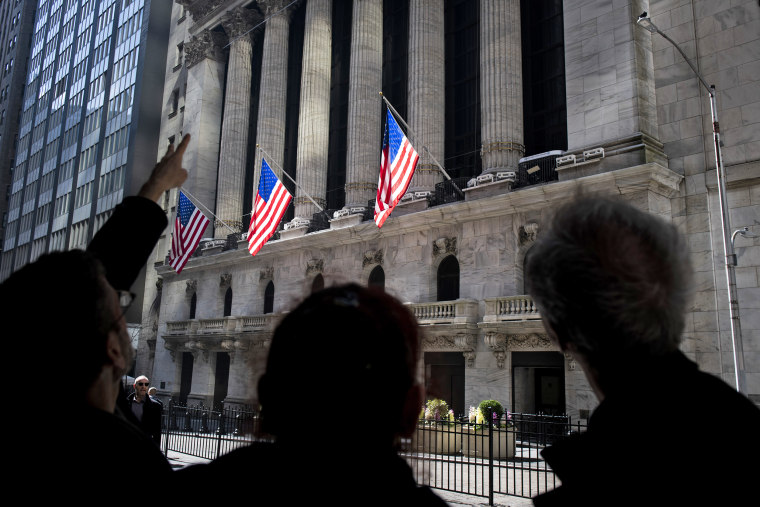On Feb. 12, the Dow Jones Industrial Average closed at 29,551.42. As the global impact of the coronavirus became impossible to ignore, the DJIA and other major indexes started to slide, though Donald Trump -- whose preoccupation with the stock market is well documented -- expressed great confidence in Wall Street. "Stock Market starting to look very good to me!" the president wrote on Twitter on Feb. 24.
Those who followed the Republican's investment advice soon regretted it. The markets have been brutal for weeks, though Trump's off-again, on-again interest has become almost amusing.
On March 2, for example, after a good trading day, Trump boasted, "The stock market went up -- I'm not sure, it may be a record, and I've never seen anything quite like it. But the stock market, I think, had a record day today -- up.... And so, we're very excited about that."
Just 24 hours later, after a deep Wall Street slide on March 3, the president was asked for his reaction. "I haven't seen it. I'm focused on [the coronavirus outbreak]," he replied, adding, "I'm focused on this. This is very important."
After a welcome spike on Friday, Trump had rediscovered his interest in the matter.
President Donald Trump on Friday sent a note to supporters that included a chart showing the Dow Jones Industrial Average dramatically rising roughly at the time he began a news conference declaring a national emergency over coronavirus. The President signed the chart. The note, which was also sent to some members of Congress, included screenshots of television coverage of the stock market closing much higher than Thursday.
On Saturday morning, Trump published a tweet that read, "BIGGEST STOCK MARKET RISE IN HISTORY YESTERDAY!" Soon after, the president appeared in the White House press briefing room and seemed eager to take credit for Wall Street's one-day rise.
"I was honored to see that the stock market -- you were mostly there with us -- set a record in a short period of time -- over a 45-minute period that we had the press conference yesterday in the Rose Garden," he bragged. "That was a record. All-time record. I think we should do one of them every day, perhaps. How about every -- how about five times a day? We'll do one five times a day. But that was something to watch. And I had no idea. We walked back, I said, 'So how did that work out?' They said, 'Sir, you just set a new record in the history of the stock market.' So that was pretty good."
For now, let's put aside questions about the propriety of a national leader putting so much emphasis on Wall Street in the midst of a public-health crisis. Instead, let's consider why this is folly.
If there's one thing Trump should've learned of late about the world of finance, it's that there's no political upside to a president tying his fortunes directly to volatile markets. Trump seems to have convinced himself that good days on Wall Street are a result of his genius, while bad days don't count.
But this is ridiculous. Jay Carney, one of the Obama-era White House press secretaries, noted a while back that it's a "good time to recall that in the previous administration, we NEVER boasted about the stock market -- even though the Dow more than doubled on Obama's watch -- because we knew two things: 1) the stock market is not the economy; and 2) if you claim the rise, you own the fall."
It's a simple truth that Trump doesn't want to learn.
